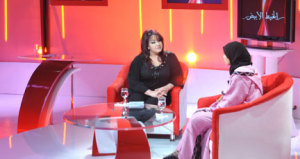 In the Arab Nation, there is a problem with “hate speech.” In this article, the definition of hate speech is discussed at great length, because there is no finite definition. As shown in the picture above, Aidan White, the director of the Ethical Journalism Network, believes that hate speech needs to be defined by five basic principles. They are:
In the Arab Nation, there is a problem with “hate speech.” In this article, the definition of hate speech is discussed at great length, because there is no finite definition. As shown in the picture above, Aidan White, the director of the Ethical Journalism Network, believes that hate speech needs to be defined by five basic principles. They are:
- the status of the speaker
- the reach of the speech
- the intention of the speaker
- the content and form of speech
- the economic, social and political climate
A lot of the time, hate speech varies from nation to nation because of the regulation of the government. “Governments define it to serve their own interests,” said White.
This means that technically, the government could consider hate speech to be anything that paints the government and its authoritative figures in a negative light. A simple opinion could be twisted and manipulated and put into the category of hate speech. This contributes to the volatile environment that many journalists have come to face in the Arab nation. The words that they write are under constant scrutiny, and left to the interpretation of the government.
If there is so much government regulation in Arab media, then why can’t there be a governing body to establish what exactly constitutes hate speech? There needs to be guidelines established to determine what is and is not acceptable in the media. This will help to regulate the government as well as those that are publishing the possible hate speech. The intrusive and overbearing governments have a chance to interfere and have a positive outcome.
Hate speech is a negative form of propaganda that should be avoided at all costs. It should be a point of focus without the government tainting the definition and regulation.
Hate speech fuels the danger that journalists face. It is important to eradicate it from usage and practice ethics, self-regulation and good governance.
Source:
http://www.huffingtonpost.com/magda-abufadil/beirut-seminar-targets-ar_b_6163680.html



